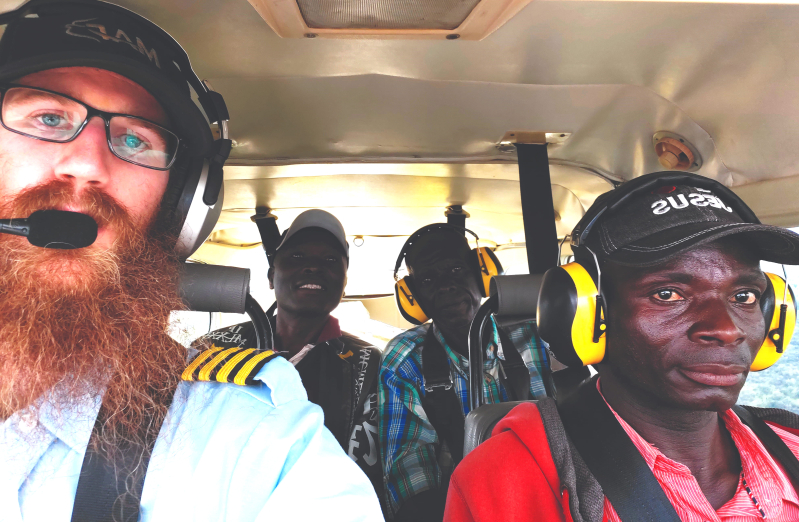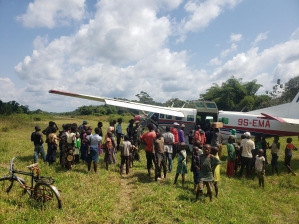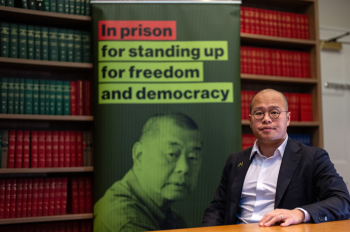
Dominic Villeneuve grips the controls as his small aircraft approaches a remote airstrip in the Democratic Republic of Congo. Below, armed militias control the roads. Villages have been cut off from medical care, food supplies, and hope. But Villeneuve flies in anyway.
The Canadian pilot works for Mission Aviation Fellowship (MAF), a Christian organization that sends aircraft into some of the world's most dangerous places. His mission: deliver aid to communities trapped by conflict.
“Yes, this work is stressful,” Villeneuve told Christian Daily International in an interview. “But my faith gives me the peace that surpasses all understanding. I have peace because this is what God has for me—this is my calling.”
Several months ago, after returning from a flight, he noticed a bullet hole in one of his aircraft’s wings. Even with extensive safety protocols in place, he says the thought of not flying is out of the question.
The DRC faces one of the world's worst humanitarian disasters. The M23 militia group terrorizes eastern regions while other armed factions fight for control. 27 million people need humanitarian assistance, according to the United Nations. The organization warns the crisis will worsen without immediate peace efforts.
Decades of conflict have displaced millions and destroyed infrastructure. Roads crumble into impassable tracks. Government services have collapsed. The DRC ranks among the world's five poorest countries, despite vast mineral wealth.
Most aid organizations cannot reach isolated communities. Commercial flights avoid the region and road travel means risking ambushes, kidnapping, or death. So pilots like Villeneuve take to the skies.

MAF has a team of 26 members across the DRC, flying to over 35 airstrips and serving more than 40 partner organizations. The pilots carry medicine to remote clinics, food to starving villages, and peace negotiators to warring tribes.
“In the DRC, MAF has flown peace negotiators and reconciliation workers into otherwise unreachable communities caught in tribal conflict,” Villeneuve explained. “These flights have made it possible for opposing groups to meet in neutral spaces, broker peace agreements, and reduce violence.”
The organization also transports Bible translation teams, medical personnel, and emergency supplies. Each flight brings hope to communities the world has forgotten.
This year brought unprecedented challenges. MAF evacuated four staff families due to civil unrest—highly unusual for the experienced organization.
“We take every precaution possible to mitigate risk, but are committed to supporting these communities,” said Tim Bax, VP of International Staff & People Care for MAF Canada.
The pilots face constant obstacles beyond violence. Fuel shortages ground planes for weeks. Poor infrastructure makes landing dangerous. Power outages lasting months force reliance on generators and solar panels.
“Food and fuel insecurity are constant concerns,” Villeneuve said. “Basic goods like rice, flour, and fuel often disappear from the market or become prohibitively expensive. Gasoline and diesel are especially critical since our planes and generators depend on them.”
Water systems fail for months or years. Electrical grids provide unreliable power that damages equipment. Supply trucks avoid the dangerous roads, creating shortages of everything.
MAF recruits skilled Christian pilots and support staff who want to serve as missionaries. The organization completed 16,477 flights across 12 countries in 2024, connecting isolated communities with the outside world.
“We are looking for people who are followers of Jesus, who have a solid grounding in the Word of God and a strong local church connection,” MAF stated. “People motivated by the Great Commission and a desire to overcome isolation.”
As the world recently observed the International Day of Peace on Sept. 21, MAF defines peace as something beyond quiet battlefields.
“Peace means more than the absence of gunfire,” Villeneuve explains. “It is the peace that surpasses understanding—the spiritual assurance of God's presence even in the storm.”
For MAF, peace means enabling reconciliation between enemies. It means bringing medical aid so violence is not the only means of survival. It means connecting isolated people with hope.
“At the heart of every crisis are people—mothers, fathers, children—who, despite speaking different languages or living in distant lands, are just like us,” MAF states. “They are scared, they are hurting, and above all, they need love.”
Villeneuve and his fellow pilots continue flying into danger because they believe transformation is possible. Each flight carries supplies, but more importantly, it carries a message: you are not forgotten.






